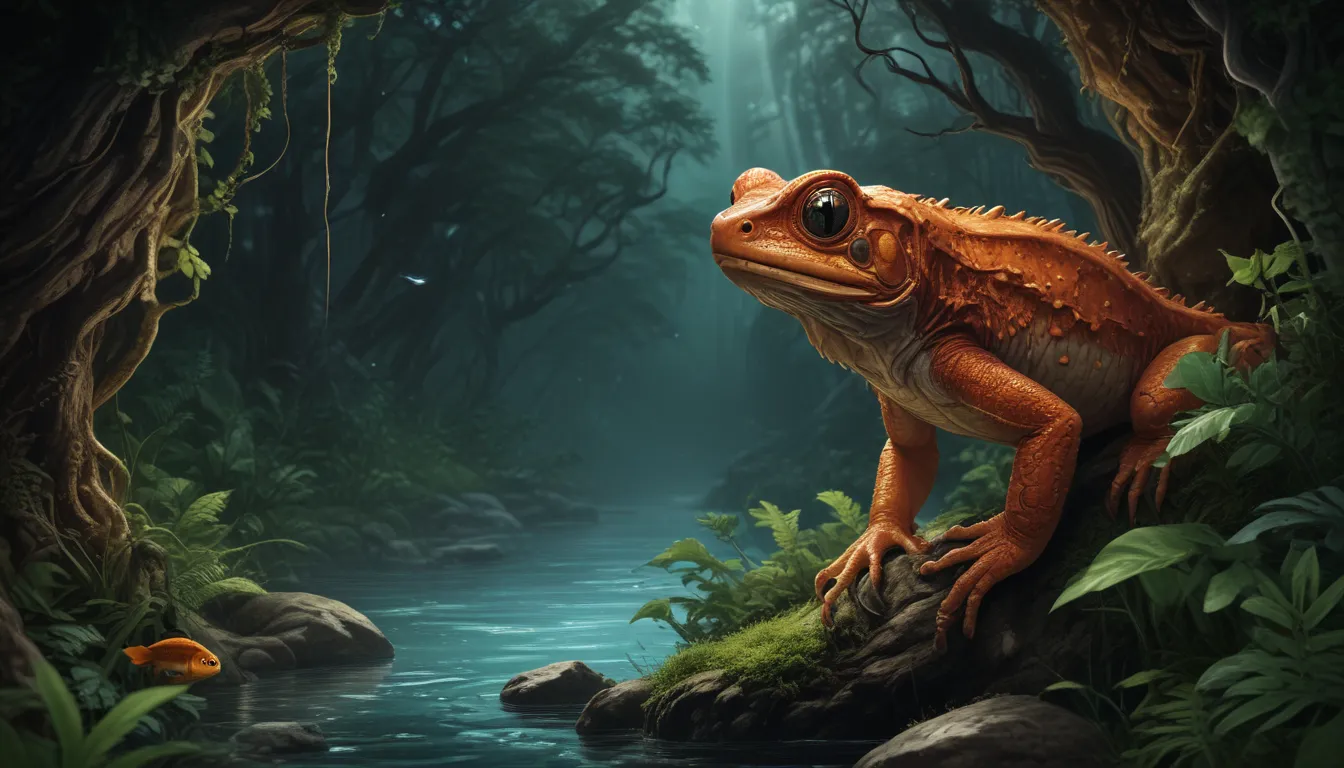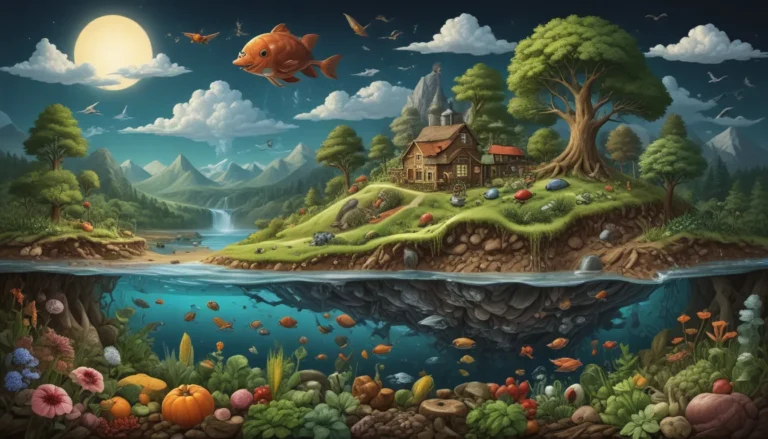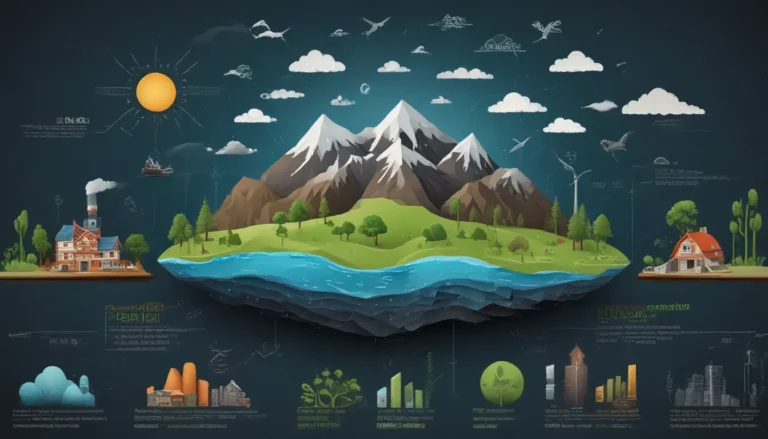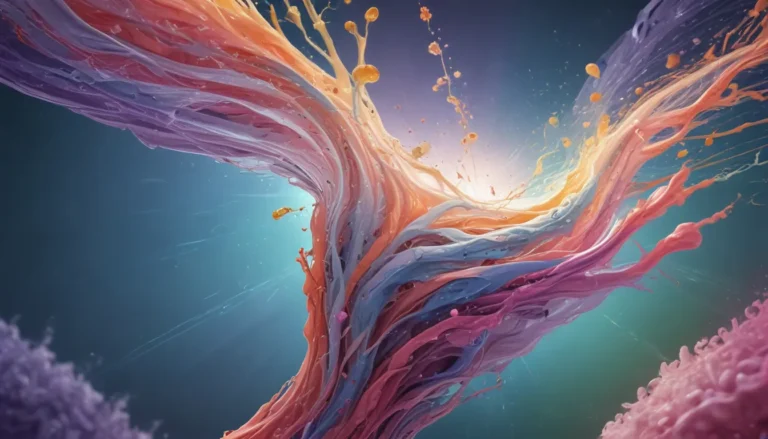A Note About Images: The images used in our articles are for illustration purposes only and may not exactly match the content. They are meant to engage readers, but the text should be relied upon for accurate information.
Have you ever pondered upon the intricacies of the animal kingdom, particularly the mesmerizing realm of invertebrates? These captivating creatures, devoid of a backbone or vertebral column, constitute an astounding 97% of all animal species on our planet. As we delve into the depths of their enigmatic world, we uncover a plethora of fascinating facts and awe-inspiring adaptations that showcase the remarkable diversity and significance of invertebrates in our ecosystems.
Unraveling the Marvels of Invertebrate Diversity
Invertebrates reign supreme as the dominant group in the animal kingdom, boasting a staggering diversity that encompasses an array of species, shapes, and sizes. From the vibrant hues of insects to the ethereal beauty of jellyfish, these creatures have evolved specialized adaptations that enable them to thrive in a cornucopia of habitats. Whether scurrying through the undergrowth or pulsating gracefully in the depths of the ocean, invertebrates are a testament to the resilience and creativity of nature.
Embracing the Armor of Exoskeletons
While vertebrates rely on internal skeletons for support and protection, invertebrates showcase an alternative approach through their exoskeletons. Crafted from the resilient compound chitin, these external coverings offer a lightweight yet sturdy shield that enables invertebrates to navigate their surroundings with finesse and resilience. With their exoskeletons serving as a suit of armor against the perils of their environment, invertebrates exemplify the art of adaptation and survival.
Delving into the Wonders of Marine Life
The vast expanses of the ocean harbor a treasure trove of invertebrate marvels, from the intricate reefs of corals to the delicate tendrils of jellyfish that dance with ethereal grace. In the mysterious depths of the sea, invertebrates like bioluminescent creatures illuminate the darkness with their mesmerizing glow, showcasing adaptations that defy conventional imagination. These marine wonders exemplify the exquisite beauty and complexity of invertebrate life beneath the waves.
Unveiling the Extraordinary Abilities of Insects
In the realm of invertebrates, insects stand out as the paragons of diversity and adaptability. From the awe-inspiring power of flight to the intricate language of pheromones, insects exhibit a myriad of astonishing abilities that set them apart as nature’s virtuosos. With their ingenious camouflage techniques and masterful mimicry, insects navigate a world of endless challenges with unparalleled finesse and ingenuity.
Celebrating the Backbone of Resilience in Invertebrates
The absence of a backbone doesn’t deter invertebrates from thriving in their respective ecosystems. With flexible bodies and jointed limbs, these resilient creatures have honed a plethora of structural adaptations that enable them to conquer the challenges of movement and support. From the sinuous grace of worms to the agile acrobatics of arthropods, invertebrates embody the essence of adaptability and resilience in the natural world.
Witnessing the Miracle of Regeneration
Invertebrates possess a miraculous ability to regenerate lost body parts, a feat that defies conventional notions of biological limitations. From the majestic starfish regrowing their arms to the humble flatworms regenerating entire bodies from minuscule fragments, these creatures showcase a regenerative prowess that borders on the miraculous. Through the power of regeneration, invertebrates embody the indomitable spirit of resilience and renewal in the face of adversity.
Unraveling the Enigma of Reproductive Strategies
The reproductive strategies of invertebrates are as diverse and enigmatic as the creatures themselves. From the intricate social structures of bees and ants to the macabre theatrics of praying mantises engaging in sexual cannibalism, invertebrates captivate us with their kaleidoscope of reproductive behaviors. Whether as hermaphrodites or masters of social cohesion, these creatures exemplify the boundless creativity and complexity of nature’s reproductive tapestry.
Embarking on the Ecological Odyssey with Invertebrates
Invertebrates play a pivotal role in the delicate tapestry of ecosystems, serving as pollinators, decomposers, and vital links in the food chain. Bees, with their crucial role in pollination, ensure the propagation of countless plant species, while invertebrates contribute to the recycling of essential nutrients through decomposition. Through their symbiotic relationships and ecological contributions, invertebrates underscore their indispensable importance in maintaining the balance and vitality of our ecosystems.
A Reverent Farewell to the Marvels of Invertebrates
In conclusion, the world of invertebrates beckons us to marvel at its wonders and unravel the mysteries of its intricate tapestry. From the resilient tardigrades to the enigmatic octopuses, these creatures invite us to a realm of unparalleled diversity and adaptability. By immersing ourselves in the study and appreciation of invertebrates, we deepen our understanding and reverence for the profound beauty and complexity of the natural world. So, the next time you encounter a spider or a jellyfish, take a moment to savor the marvels of the invertebrate world that enrich our lives and inspire our imaginations.
Inquiries Answered: Your FAQs on Invertebrates
- What are invertebrates? Invertebrates are animals lacking a backbone or vertebral column, constituting approximately 97% of all animal species on Earth.
- Can invertebrates feel pain? While ongoing research continues to explore this topic, it is generally believed that most invertebrates do not experience pain in the same manner as vertebrates.
- Why are invertebrates important? Invertebrates serve crucial roles in ecosystems as pollinators, decomposers, and prey, contributing to nutrient cycling and biodiversity.
- Where are invertebrates found? Invertebrates thrive in diverse habitats, including freshwater bodies, forests, grasslands, and oceans, showcasing their adaptability to a myriad of environments.
- Do invertebrates exhibit complex behaviors? Yes, many invertebrates demonstrate the ability to learn and exhibit sophisticated behaviors, highlighting their cognitive capabilities and adaptability.
As we bid adieu to the enchanting world of invertebrates, let us carry forth the wonder and reverence we have cultivated for these marvelous creatures. By embracing the diversity and resilience of invertebrates, we embark on a journey of discovery and appreciation for the natural world that surrounds us. So, immerse yourself in the wonders of invertebrates, and let their captivating allure inspire you to cherish and protect the rich tapestry of life on Earth.






